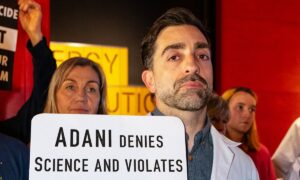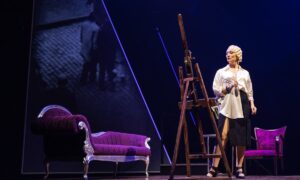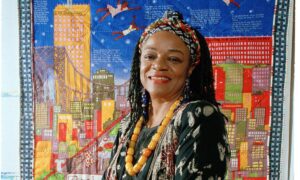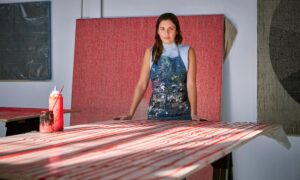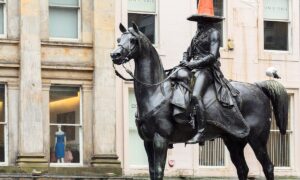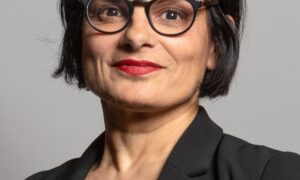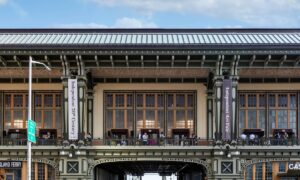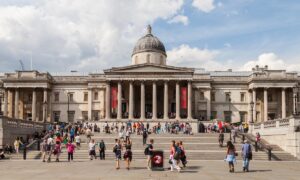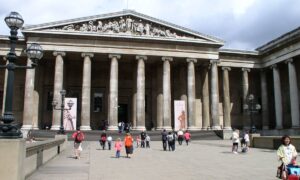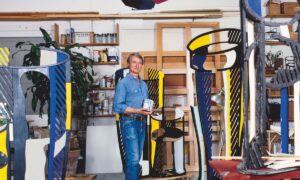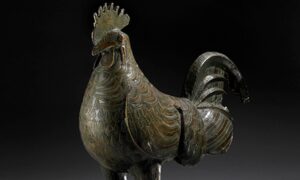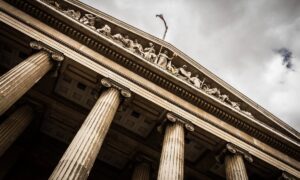[ad_1]
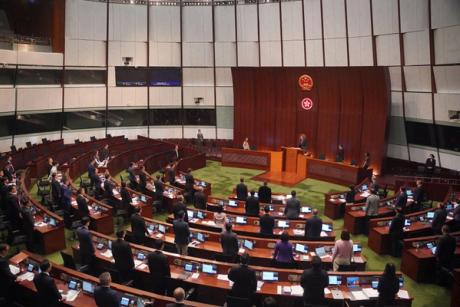
A new security law amending Hong Kong’s basic law (its mini-constitution) was passed yesterday and will be implemented from 23 March. The law has cast a pall over the city’s bustling art week, as well as a full-sized Art Basel Hong Kong (26-30 March) that had been excitedly billed as a return to pre-pandemic form.Passed unanimously by the 89-member “patriots only” legislature known as Legco, the article 23 measure is a local follow-up to the June 2020 national security law imposed by mainland China. It was first introduced in 2003 but shelved that year after triggering the first of three mass protest movements that have since taken place in the city.Backers and opponents alike say article 23 simply reinforces extended policies that have clamped down on resistance against Hong Kong’s Beijing-controlled government, and that its impact will depend on actual implementation. Both sides draw comparisons to America’s draconian 2001 Patriot Act following 9/11, which gave intelligence agencies and law enforcement dramatically increased powers of surveillance and other counter-terrorism measures.“The pendulum has been swinging one way: it keeps tightening,” says a Hong Kong-based curator, speaking anonymously. “There have been pauses along the way. Will there be another one? Will it tilt back a bit more?”. Some “contemporary art won’t be affected,” he says: “abstract art, for example, they don’t care. But the space for the broader relevance of art is tightening and closing down.” He adds, however, that “the government propaganda isn’t fooling anyone, locals or foreigners. It’s almost like the propaganda now isn’t aimed at convincing people, it’s so weird.”“At this stage we have no indication that Article 23 will have any impact on the way we operate,” says an Art Basel Hong Kong spokesperson. “We have never faced any censorship issues at our shows, nor have we been asked to do anything differently since the introduction of the national security law in 2020. As with all Art Basel shows, our selection committee is responsible for reviewing applications and selects galleries solely based on the quality of their booth proposal.”The spokesperson continues: “We are committed to Hong Kong’s vibrant cultural community, and to continuing to provide a platform for the vital exchanges and conversations around art for which Art Basel is renowned.”The 212-page measure, which Hong Kong’s chief executive John Lee has heralded as “historic”, introduces 39 new kinds of security crimes. It stipulates life sentences for sabotage, treason and insurrection, five to seven years for theft of state secrets and espionage, and up to ten years imprisonment for collusion with “external forces”. (The government has made a concerted effort to reframe the 2019 protests, which were sparked by an unpopular extradition bill, as a “colour revolution” and “black riots” instigated by foreign powers.) Also under the new law, failure to disclose the “commission of treason“ by others brings 14 years’ imprisonment. Organisations such as the Hong Kong Bar Association and Hong Kong Journalists Association have expressed concern about the broad, vague definitions of the infractions.Two Hong Kong-based artists anonymously describe the measure as expected after earlier crackdowns. “It feels inevitable, like many decisions here since 2019,” says one who is preparing to leave the city next year. “The sensation has been that there’s nothing to be done, that meaningful decisions were never really in the hands of people here and any appearance of local influence was merely for optics.”“No one actually talked about [Article 23] yesterday,” says the other. “It feels like something you know will eventually happen and you could not stop but you can ignore it. And we avoid talking about it as if this is not important.”The first artist adds: “People in the industry have been working very well within the confines, the many unknowns and red lines. Due to the lack of space here because of the high cost of living, and the resulting family/social pressures required to adapt to living in one of the world’s smallest amount of personal space per capita, Hong Kong is more a market than a place of artistic production. The market has and will adapt to these new conditions.”The same artist believes Article 23 will further accelerate the ongoing cultural brain drain. “Hong Kong artists like many middle class Hongkongers [historically] go overseas for education, often obtain passports or residency abroad, and return to the city if conditions are positive here. Since 2019 they do not return. Every practicing Hong Kong contemporary artist I know has or is working on a plan to leave.”The curator says that implementation is the key question. “It’s true that a lot of such regulations and laws exist in other countries. How they are applied is completely different.“ He adds that “already [here] they will catch you with NSL [national security law].” He says that while the tough law and now article 23 have “eviscerated the official opposition, plus clamped down the space for freedom of expression in Hong Kong”, the bigger, often overlooked worries “are quieter trends that people (including the media) aren’t paying attention to.” These are “the climate of fear that people—or more specifically organisations and funders—feel is really causing issues in the non-profit sector.” A push across the board to minimise risk when providing funding for the arts, meanwhile, means a “systematic vetting of artists for even minor risks, and often choosing or pressuring organisations not to do an event,” the curator says.“And again, they are taking not just the mainland [China] playbook but the Singapore playbook,” where systematic visits to check for infractions under the auspices of health and safety are commonplace. “They just grind you down like that with official-looking visits and checks.”Though the city’s scene has until now nurtured an exciting generation of young artists, “for emerging artists, would they still be interested in developing art that [encourages] challenging thoughts?” wonders the second artist. “Or would they simply create decorative and positive art works in the future? Hong Kong is part of China so it is never too late for Hong Kong artists to learn from artists in [mainland] China,” be that through evading or complying to censorship.She posits that the measure will not impact Hong Kong’s art week or art market. “Parties still go on. No one wants to talk about serious and heavy topics when they want to make a living, especially with the people with power and status and money, people who are with the same class of the rulers.” Instead of more political engaged art, “Hong Kong’s art world is moving forward towards the funding bodies’ interests like art tech, celebration, and spectacles for tourists.”
[ad_2]

